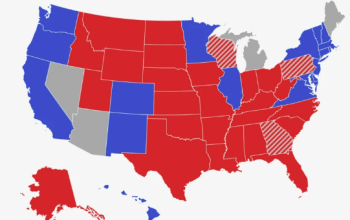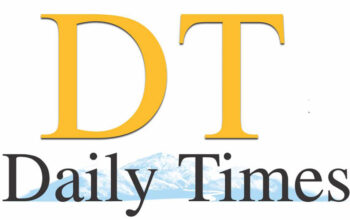Despite the country securing external loan payback arrangements under the International Monetary Fund (IMF) loan program, the majority of businesses remain wary of the risks associated with defaulting on foreign debt repayments, according to a survey conducted by Gallup Pakistan.
The businesses have little hope that the current caretaker government will provide effective solutions to the problems they face, including soaring inflation, reduced energy bill subsidies, and a devalued currency.
The survey included over 500 businesses, with nearly half of them reporting that they had to resort to cost-cutting measures to survive the inflationary environment that prevailed in the country during the second quarter, which ended on June 30, 2023.
"The majority (72%) of businesses surveyed are concerned by Pakistan’s potential default. Of these, nearly half (49%) express significantly high concern. 17% of survey respondents are not concerned at all," according to the survey results.
Read PM Kakar says Saudi Arabia to invest $25b over next five years
To recall, Pakistan achieved an IMF lifeline of $3 billion in late June 2023 and its foreign exchange reserves improved to $8.72 billion in mid-July with inflows from the Fund and friendly countries totalling $4.2 billion in June-July 2023.
The reserves, however, are again depleting amid the return of the balance of the current account back into deficit in July compared to the surplus in the prior four months. The reserves dropped to $7.85 billion on August 25, suggesting the crisis of international balance of payment remains stubborn and the risk of default is reemerging.
However, experts provide reassurance that the risk of Pakistan defaulting on its loans is not immediate. These experts argue that Pakistan's participation in the IMF loan program has been crucial in preventing the nation from falling into default. However, they caution that there is a possibility of default occurring within the next two years if the country fails to reschedule or re-profile its mounting foreign debt.
Gallup added in a statement: "Majority of Pakistan’s businesses are 'not hopeful at all' about the ability of caretaker Prime Minister Anwaar-ul-Haq Kakar to save the country from a potential default on its international financial obligations shows the latest survey."
The survey's results showed rising inflation readings remained the single largest crisis for businesses, followed by receipt of inflated power bills. They said the rupee devaluation, rise in petroleum product prices and taxation remained the other top three annoying issues for them respectively.
Although the future business situation score improved by two percentage points in the second quarter of 2023, the overall reading stayed at negative 20 points.
Similarly, the current business situation score and score for the country direction improved but remained deep in negative territory.
Read More PM Kakar orders swift action against power thieves, defaulters
Less pessimistic about current conditions, the business owners are largely negative about future prospects and the direction in which Pakistan is heading. "Prevailing economic and political crises have contributed to persisting business insecurity," it said.
The backbreaking inflation was cited as the most important problem the businessmen would want the caretaker government to solve as price hike has significantly eroded people’s purchasing power besides keeping the interest rate at a record high in recent months.
The freefall of the rupee and the imposition of taxes were other problems more and more businesses wanted the government to address. The number of businesses facing load-shedding rose by 25% this quarter as 69% said yes when asked if they were braving power outages.
Half of the businesses surveyed said they had laid off their employees because of tough business conditions in the quarter under review, showing a 13% increase over the previous quarter.
Asked questions about their current and future business situation as well as the direction of the country, the businessmen’s view on all three fronts was negative.
“While the overall negative trend persists, this indicates a marginal improvement in business confidence after quarter 1,” stated the report.
The business owners were equally pessimistic about the future of their businesses as 60% expressed negative expectations this quarter. Only 40% are upbeat that things will improve.
Like past two quarters, 88% of business owners and managers think that Pakistan is heading in the wrong direction.
“The business community’s view about future business in the country is the most pessimistic since Gallup Pakistan started recording this indicator,” said the report adding that the Direction of the Country Score has reduced to -79%, four percentage points less than what it was last quarter.
Half of the businesses surveyed said they had increased their output prices during the quarter under review.
Read Also Kakar sees SIFC as engine of prosperity
“Less businesses raised prices compared to quarter one, and comparatively more businesses reduced their output prices,” the report said.
This latest survey is the 10th of a quarterly Business Confidence Survey that Gallup Pakistan conducted across the country.
The Business Confidence Index is an important barometer capturing the sentiments of the business community in any country and is used across the world by policymakers.
The survey was conducted with around 560 businesses across Pakistan.
Read the full story at the express tribune website.


